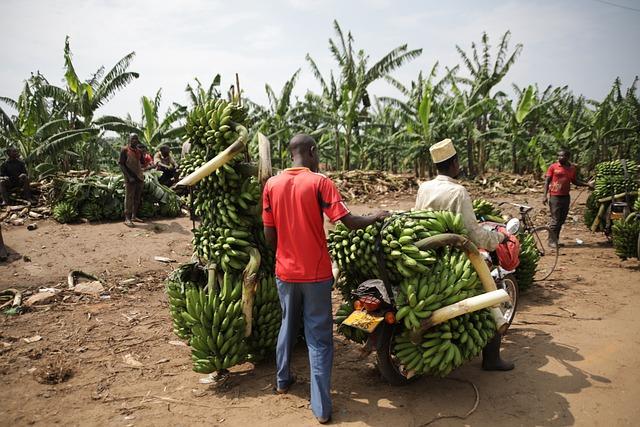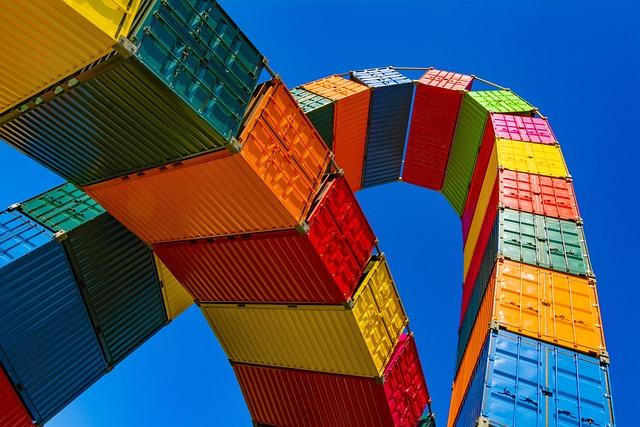Unlocking Pakistan’s Potential: A New Era of Trade Opportunities
In the heart of South Asia lies a nation brimming with potential, waiting to be tapped into. Pakistan, with its strategic geographical position, a burgeoning youth population, and a wealth of natural resources, stands on the cusp of a transformative journey. As the world moves toward a paradigm of interconnectivity and collaboration, Pakistan’s economic landscape is evolving, presenting an array of opportunities for both local and global investors. This article delves into the emerging trade dynamics, exploring the factors that are shaping this new era of commerce. From innovative policies to infrastructural advancements, we’ll examine how Pakistan is positioning itself as a pivotal player in international trade, aspiring to forge lasting partnerships that transcend borders. Join us as we unveil the potential that lies ahead and the paths that can lead to mutual prosperity.
Exploring Emerging Markets: Strategies for Leveraging Pakistan’s Strategic Location
Pakistan, strategically located at the crossroads of South Asia, the Middle East, and Central Asia, possesses unparalleled potential for revitalizing trade routes and emerging as a vital hub in the global economy. To harness this opportunity, businesses can focus on enhancing infrastructure development and forming strategic partnerships. By investing in modern transport and logistics networks, firms can ensure efficient supply chains that cater to the increasing demand for goods and services. Additionally, collaboration with regional players, leveraging projects like the China-Pakistan Economic Corridor (CPEC), can facilitate access to larger markets, promoting trade expansion beyond local borders.
Moreover, capitalizing on Pakistan’s youthful workforce and competitive production costs presents businesses with a unique advantage. Initiatives should emphasize developing skill-based training programs to empower the labor force in sectors such as technology, textiles, and agro-industry. By establishing economic zones with favorable regulations and incentives, businesses can attract foreign direct investment, creating a vibrant ecosystem for entrepreneurship. The potential for growth in industries like information technology and renewable energy further illustrates the opportunities awaiting those willing to explore and invest in this dynamic market.

Sustainable Practices in Trade: Fostering Economic Resilience and Growth
In the pursuit of economic resilience, the embrace of sustainable practices in trade is more important than ever. Businesses in Pakistan can harness the power of eco-friendly policies, enhancing competitiveness while reducing their environmental footprint. By adopting sustainable supply chain methods, companies not only adhere to global standards but also appeal to conscious consumers who prioritize ethical sourcing. This commitment can lead to a multitude of benefits, including:
- Cost savings: Efficient resource management can significantly reduce operational costs.
- Market differentiation: Offering sustainably-produced goods sets businesses apart in crowded markets.
- Increased loyalty: Conscious consumers are likely to remain loyal to brands that prioritize sustainability.
Furthermore, policies fostering sustainable trade create a nurturing environment for local industries, paving the way for innovation and job creation. Initiatives aimed at supporting small and medium-sized enterprises (SMEs) can propel these businesses towards sustainable practices, enabling them to contribute positively to the economy. Below is a simplified overview of how sustainable trade practices align with economic growth:
| Sustainable Practice | Economic Impact |
|---|---|
| Renewable Energy Usage | Reduces operational costs and carbon emissions. |
| Waste Minimization | Lower disposal costs and potential revenue from recycled materials. |
| Fair Trade Certified Products | Encourages fair wages and fosters community development. |

Harnessing Technology: Innovations That Drive Efficiency in Trade Logistics
In the rapidly evolving landscape of trade logistics, technology stands as a beacon of potential, revolutionizing the way businesses engage with supply chains. Innovative solutions such as AI-driven demand forecasting, blockchain for secure transparency, and IoT for real-time tracking are increasingly becoming standard practices. These tools enable companies to optimize their operations, reduce costs, and ensure timely deliveries. For instance, integrating AI algorithms can streamline inventory management by predicting stock needs with incredible accuracy, thereby minimizing waste and ensuring that supply meets demand effectively. Additionally, blockchain can enhance trust in transactions, enabling better partnerships across borders.
Moreover, automation in warehousing through robotics and advanced sorting systems is significantly lowering operational bottlenecks, leading to faster processing times. Businesses can also leverage data analytics to gain insights into market trends and customer preferences, allowing for more tailored services and solutions. To put these advancements into perspective, consider the following:
| Technology | Benefit |
|---|---|
| AI Forecasting | Accurate inventory management |
| Blockchain | Enhanced transactional security |
| IoT Tracking | Real-time shipment visibility |
| Automation | Reduced processing time |
By adopting these technologies, companies in Pakistan can not only streamline their logistics operations but also unlock new markets and opportunities. Embracing these innovations could lead to a paradigm shift in trade efficiency, allowing the nation to emerge as a competitive player on the global stage.

Building Bridges: Strengthening Regional Partnerships for Economic Prosperity
In an era where global interconnectivity is paramount, fostering regional partnerships emerges as a strategic imperative for enhancing Pakistan’s economic landscape. Collaborative initiatives with neighboring countries can usher in a wave of mutual benefits, paving the way for trade and investment opportunities. By setting up joint ventures and encouraging cross-border collaborations, Pakistan can leverage its geographical advantage, transforming itself into a corridor for international trade. Key sectors such as agriculture, textiles, and technology stand to gain significantly from synergies with regional partners, facilitating knowledge sharing and access to new markets.
To facilitate this growth, the establishment of robust trade agreements and infrastructure development is essential. These agreements should focus not just on lowering tariffs but also on simplifying customs procedures, ensuring that the movement of goods is as seamless as possible. Moreover, investing in transportation networks—like railways and highways—will enhance connectivity and encourage trade facilitation. In tandem, promoting a culture of entrepreneurship and innovation within communities can unlock local potential, driving forward regional economic prosperity.
In Retrospect
As we stand on the precipice of a new era for Pakistan, the landscape of trade opportunities unfolds before us like an uncharted map, rich with promise and potential. With strategic partnerships, innovative policies, and a forward-thinking approach, Pakistan is not merely participating in the global economic narrative; it is poised to become a vital contributor to it. The strength of its resources, the resilience of its people, and the unwavering spirit of enterprise are all ingredients that, when harnessed, can propel the nation into a thriving future.
However, unlocking this potential requires collective effort—visionaries in government, entrepreneurs in the private sector, and a skilled workforce ready to meet the challenges of the global market. By fostering an environment where collaboration blooms and innovation flourishes, Pakistan can turn new trade opportunities into tangible benefits for its citizens.
As we look ahead, let us embrace the journey of transformation together. The road may be arduous, but with determination and strategic foresight, Pakistan can emerge as a beacon of economic resilience and dynamism in the region. In this unfolding chapter, every stakeholder has a role to play—so let us unlock this potential, not just for today, but for generations to come. The future is here, waiting to be shaped.



